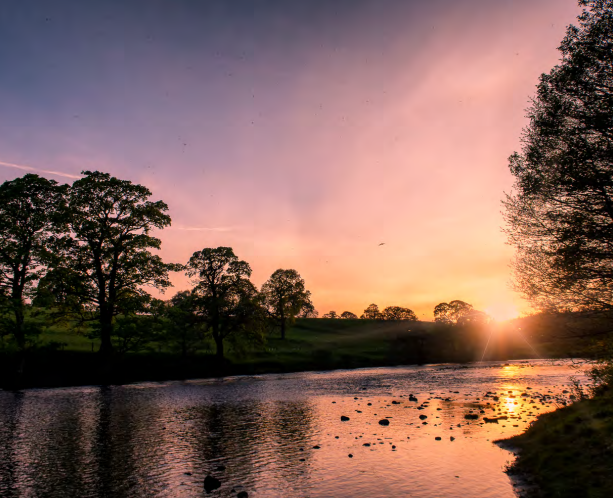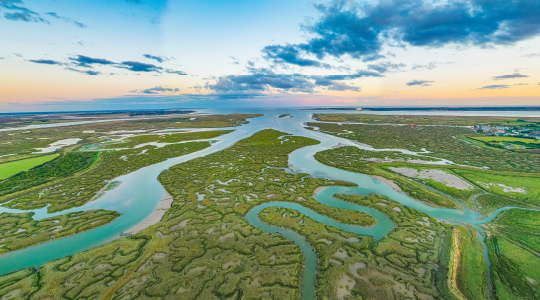
Hello Stockton on Tees
Thank you to everyone who attended our event.
Working hard with partners and local people in their communities, we are restoring and regenerating our natural environment, creating an even better place to live and work through our local actions.
Our Local Environment. Our Ambition. Our Local Action.
In June of this year, we began our £1.1 million investment in water mains upgrades in Stockton, to provide reliable and resilient water supplies and protect drinking water quality for more than 8,000 customers.
- The project sees 3km of pipes replaced from High Leven to the east end of Yarm. Upgrades protect water supplies for customers and reduce the chances of bursts that can cause disruption to supply.
- We are also investing £16 million in enhancing the sewer network across the wider Stockton on Tees area from March 2024 to March 2025.
- The project is designed to prevent sewer overflows and protect local water bodies from pollution, contributing to a cleaner, healthier environment for the Stockton community.
- The project includes the installation of over 1.6 kilometres of new sewer pipes between a pumping station near the River Tees and Allens West Railway Station in Eaglescliffe. This upgrade replaces an aging pipe and improves the resilience and capacity of the sewer network.
- To reduce the impact on local traffic and residents, innovative tunnelling techniques are being used. This approach has allowed the installation of new pipes under major roads like the A67 without the need for road closures, minimising disruption.
- We are upgrading the Carlton and Redmarshall Sewage Treatment Works site in a £2.8M investment that is expected to complete in October 2024. We are installing a chemical dosing plant to enable the site to meet the new phosphorous discharge regulations, which will apply from December 2024. Phosphorous is a nutrient which can cause algae to grow in watercourses, reducing biodiversity and river water quality.
The River Tees catchment has a number of areas where improvements to river water quality are needed, enabling them to meet Good Ecological Status, a classification given as part of the Water Framework Directive.
- We have been investing at our sewage treatment works to improve the quality of treated wastewater flowing into the river. But we believe that we must move towards more sustainable catchment and nature-based solutions, and not rely on concrete and chemicals which cost our customers money and have high carbon emissions.
- That’s why we’ve established the Thriving Catchments initiative and are working with The Rivers Trust (national), our local Tees Rivers Trust, Tees Valley Wildlife trust and other local partners, farmers, and land managers to look at managing pollutants in the Tees catchment before they get to the river.
- This will also include investigating sources of pollution throughout the Tees which also impact drinking water sources for our abstraction upstream of Stockton at Darlington.
- We continuously monitor water quality to better understand how storm overflows and wastewater treatment plant discharges affect our local environment. This helps us identify areas where improvements are needed. By doing this, we can also see how actions taken by others upstream affect our water, allowing us to develop strategies that protect and improve the quality of our rivers, lakes, and streams.
- Over the next ten years, Stockton will have 31 monitors deployed to assess the impact of our assets in the area.
The water is a blend of water from both the Lartington & Broken Scar Water Treatment works.
From the treatment works the water is moved through a network of water pipes to a number of service reservoirs (treated water storage tanks) across Teesside.
Bluespace is a term for rivers, lakes, or the sea that people can access. Working hard with local partners, our bluespaces scheme will improve a number of these areas in our region.
- We’ve calculated the Tees catchment has almost 1,000 km of bluespaces for the public to enjoy.
- We are currently looking into an opportunity for the restoration of Stockton Becks. This will be delivered by Tees Rivers Trust, Stockton-on-Tees Borough Council, and the Environment Agency, improving 13.5 km of bluespaces
with additional water quality benefits downstream. - We want local people to propose local bluespaces for improvement. Find out more information including guidance (opens new window) about whether your project might be eligible, or email us at bluespaces@nwl.co.uk.
Septic tanks have been identified as treatment solutions that require upgrades to allow us to improve water quality across our local areas.
- Septic tanks currently only provide primary treatment. The goal is to provide alternate solutions at all of these sites to provide secondary treatment.
- Various solutions have been considered going into 2025, including:
• Nature-based solutions (wetlands/vertical flow reedbeds).
• Package sewage treatment works.
• Transfer solutions (diverting flows to existing networks).
Our goal is to prevent pollution and sewage from entering rivers and seas across our region.
- Storm overflows are an important part of our wastewater network because they protect customers’ homes and the environment. They operate automatically as a relief system during heavy rain or storm conditions, or if the sewers are overwhelmed because of more water or blockages and reduce the risk of flooding to streets, homes, and businesses.
- In our next investment plan 2025 to 2030, we want to invest £4.5bn across our business - our biggest ever package to improve water and wastewater services – as we work to reduce the use of storm overflows and improve bathing waters.
- Watch our storm overflow information video (opens new window).
- At the end of April, we launched our digital interactive map (opens new window) to show up-to-date storm overflow information across the region. A video about this can be viewed here (opens new window).
- Information on our plan for storm overflows can be viewed on the national storm overflow interactive map (opens new window).
Saving water protects our local environment by limiting the amount of water we must remove.
- We will be encouraging local people to use water wisely and promoting the benefits of water meters.
- A water meter could reduce the amount of water you use by up to 20%, saving you an average £264 a year on your bill.
- To find out if a water meter is right for you, why not try our water usage calculator to see if it can save you money.
The Branch Out fund supports local projects that protect local ecosystems by building their resilience to climate change – bringing benefits to local people.
- The link between health and the countryside is well known and many of the Branch Out projects will encourage people to be outside in nature. Enhancing and linking habitats will help local flora and fauna be better placed to deal with climate change.
- If you, or your organisation, are involved in a project doing this, then the Branch Out Fund might be able to help you. Applications for grants of anywhere between £1 - £10,000 are very welcome. Read the guidance notes (opens new window) on the sorts of projects that quality for grant funding.
- Email applications to branchout@nwl.co.uk.
We’re proud to manage a valued wetland reserve at Portrack, in partnership with the Tees Valley Wildlife Trust.
Our conservation partnership with Tees Valley Wildlife Trust also extends to the land behind Broken Scar Water Treatment Works.
Even after our planned big investments we still expect bills in the North East to be the lowest in England.
- We know our communities are facing a cost-of-living crisis with food, housing, transport, and other bills going up.
- We are committed to helping those that need it most. If you or anyone you know is struggling to pay their bills, please talk to us. There are lots of ways we can help.
- Try our eligibility checker to find out which of our financial support schemes you may be eligible for.
Are you passionate about caring for our local waterways and making a difference in your community? If you are then why not become a Water Ranger?
- Water Rangers are an enthusiastic group of local volunteers who roll up their sleeves and take positive local action by reporting any issues and notable wildlife they see in and around our local rivers and streams.
- Don’t delay, email waterrangers@nwl.co.uk to join today.
We think it’s important to give back to make a positive impact in our local communities.
- All our team at Northumbrian Water are encouraged to volunteer to support community groups and charities through our Just an Hour scheme.
- This important initiative gets our teams out in the communities we serve, putting their shoulders to the wheel of great causes - people choose causes that resonate with them personally - for at least 15 hours a year.
- Find out more about Just an Hour (opens new window).
Find out more
Are you sure?
Changes are waiting to be saved



